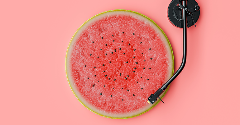News
Consumer concern over sugar hits new high
6 Sep 2018Sugar has replaced price as the top concern for UK consumers when buying food, according to a survey from the nation’s Food Standards Agency. Concern about sugar content is similarly high across Europe, so how should food and beverage companies respond?

Sugar reduction has been a key issue for the food industry for several years as consumers repeatedly say they aim to cut the sweetener from their diets wherever possible. Continuing and rising concern about sugar suggests that this is a new normal in consumer behaviour rather than a passing trend. In 2016, for example, market research organisation Sensus surveyed 2,500 adults in France, Germany, the UK, Italy and Sweden and found that 60% said they monitored their sugar intake. A quarter of respondents said they actively sought out low sugar products.
In the UK, the FSA found in May 2018 that 55% of consumers were concerned about the amount of sugar in their food, up from 39% when the agency conducted its first Public Attitudes Tracker survey in 2010. Only 43% cited price as a top concern in 2018, down from 50-60% in previous surveys.
For manufacturers, there are several options when it comes to sugar reduction, including reformulating with natural sweeteners, such as honey, stevia or monk fruit. However, reformulating with such ingredients sometimes fails to deliver the sugar-like taste that consumers prefer. They also tend to come with a price premium compared to sugar, and some have functional shortcomings in certain applications, as sugar plays an important role in texture, mouthfeel and the browning of baked goods, for example. When it comes to well-known brands, companies are often hesitant to reformulate in case consumers reject the new version – even if it is better for their health.
In new product development on the other hand, where there is no existing sweetness profile tof mimic, using alternative sweeteners could be a smart strategy. Apart from a proliferation of new ingredient suppliers specialising in natural sweeteners like monk fruit and stevia, many established suppliers have also branched into this area as they have identified a major market opportunity. In the stevia space alone, Tate & Lyle has partnered with Sweet Green Fields, Cargill has entered a partnership with PureCircle, and Ingredion has partnered with SweeGen, Inc. More recently, Cargill has also collaborated with Evolva to produce the sweet components of stevia from fermentation, rather than through extraction from the stevia leaf.
Some manufacturers have also experimented with smaller portion sizes to cut sugar, meaning that the taste remains the same, but with less sugar per portion. Confectionery manufacturers in particular have embraced this approach, as they have struggled to find other ways to cut sugar without affecting taste and texture. In just the past two years, Nestlé has reduced the size of its KitKat bars from 45 grams to 41.5 grams, Mars has cut the weight of its packets of Maltesers, M&Ms and Minstrels by 15%, and Mondelez has changed the shape of its Toblerone bars, reducing the weight by about 10%.
For many companies, shrinking portions have not come with shrinking price tags, leading to complaints on social media. However, the FSA’s finding that UK consumers are more concerned about sugar content than price may go some way toward allaying concerns that sales could fall significantly as a result.
What is clear is that food and drink companies must respond to growing consumer interest in low- and no-sugar products, whether through reformulation, new product development, portion control, or gradual sugar reduction across product categories.
Related news

Retail landscape lacks nutritious and affordable food, says ATNi
30 Dec 2025
A rapid increase in modern food retail has given retailers growing influence over consumer diets, according to global non-profit ATNi’s latest assessment.
Read more
Debate over ban on ‘meaty’ names for plant-based products reaches stalemate
26 Dec 2025
The debate over a ban on plant-based products using “meaty” terms has reached a stalemate, leaving manufacturers in limbo and still facing overhauls to their marketing and packaging.
Read more
Multi-sensory food and drink products to gain traction in 2026
16 Dec 2025
Trend forecasters predict that sensory elements will play a larger role, helping food and beverage brands differentiate themselves in a competitive market in 2026.
Read more
Big appetite for M&A between European and US food and drink companies
3 Dec 2025
Persistent tariffs on EU food and beverage exports have helped drive record levels of M&A activity between European and US companies this year, according to analysis by ING.
Read more
Non-UPF Program extends certification scheme to entire food industry
30 Nov 2025
The Non-UPF Program has extended its certification scheme to the wider food sector, championing a move towards healthier consumption habits.
Read more
Lancet study links UPFs to chronic disease risk
26 Nov 2025
UPFs are consistently associated with an increased risk of diet-related chronic diseases, according to a comprehensive review of global evidence in The Lancet .
Read more
Concerns swirl around cinnamon’s compliance with EU law
25 Nov 2025
Cinnamon may be a top functional ingredient, but it needs stronger protocols to ensure it meets EU food safety laws and quality standards, say researchers.
Read more
Oat Barista: Innovation for game-changing beverages
20 Nov 2025
Oat Barista is a clean label, sustainable, and innovative drink base specifically designed to create the perfect foam in one single ingredient.
Read more
How younger consumers are redefining ingredient choices and rejecting brand loyalty
18 Nov 2025
Gen Z and millennial consumers’ preferences for transparency, functionality, and purpose are “redefining the very nature of consumption itself”, says SPINS.
Read more
Hybrid formats and flexible positioning to disrupt category norms in 2026
17 Nov 2025
Trend forecasters expect food and drink to move more fluidly across occasions, functions, and formats as consumers seek versatility, novelty, and convenience.
Read more



